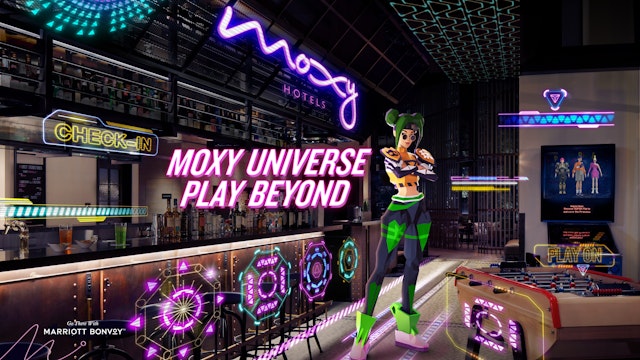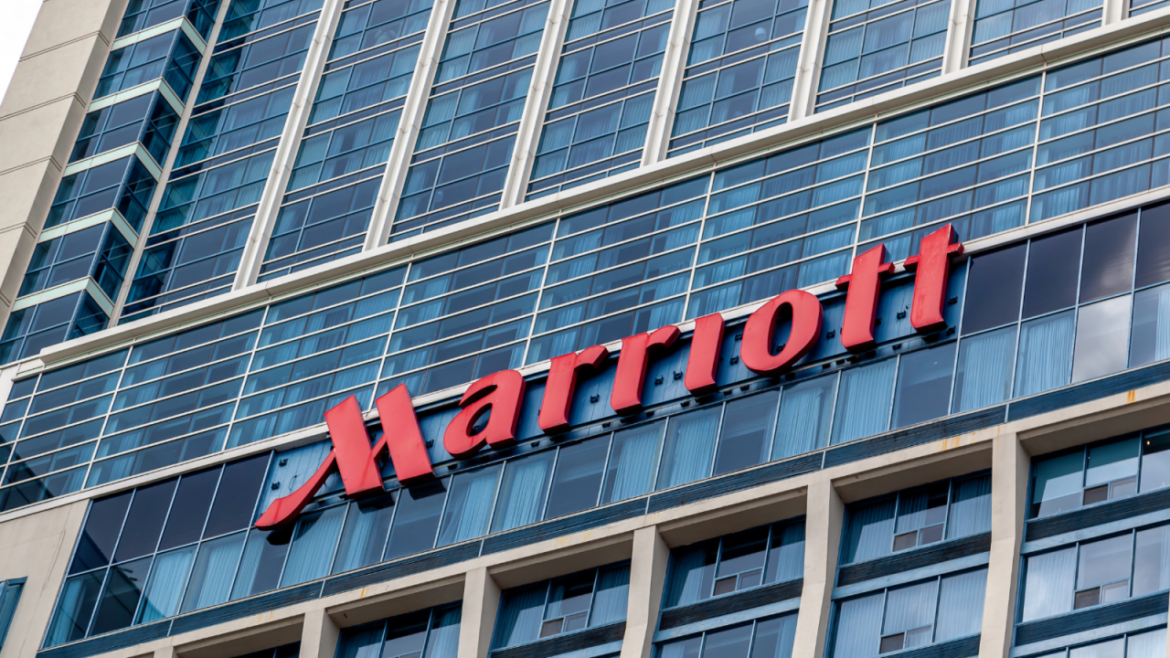Marriott has become an industry pioneer in emergent blockchain-based technologies like NFTs and virtual reality. Here’s what they’ve learned.
In late 2021, as the grip of the pandemic began to slacken, Marriott International was in need of a spark – something that would reignite a passion for travel among an audience that, for much of the previous two years, had been living under lockdown.
It found such a spark in web3. The metaverse – a three-dimensional, interactive virtual ecosystem contain a vast and growing number of specific experiences – is just one manifestation of web3, which, as the name suggests, is a term used to describe what’s envisioned as the next evolutionary stage of the internet.
Non-fungible tokens, or NFTs – essentially non-reporoducible stamps to verify ownership of a particular asset – are another manifestation of web3. They were also Marriott’s gateway into the world of blockchain-based technologies. In December 2021, the brand launched its first branded NFT drop — becoming the first hospitality brand to create its own NFTs, per the company. Unveiled at Art Basel in Miami Beach, the drop included three tokens, each of which was designed by a separate artist. The artwork for the NFTs was inspired by its recently launched “Power of Travel” campaign. The NFTs were awarded to three individuals and came with a significant number of loyalty points, which can be redeemed for travel experiences like hotel stays, car rentals and flights.
In addition to inspiring those three winners to start traveling again, “NFTs were definitely a strong marketing tool,” says Nicolette Harper, vice-president of global marketing and media at Marriott International. “During the pandemic, we had to basically start from scratch. We had to identify where our current and potential future customers are spending their time: What were they doing? How were they connecting? How did they want to socialize? And then how does a brand like Marriott fit into all that? Through all that data in the research, we really found that the metaverse … was really where they were spending their time, whether it was playing games, watching games, going to concerts … This whole social component that they were missing out on during the pandemic, they were getting their fix, if you will, in a very different way, through metaverse experiences. And so we knew we had to be there.”
Marriott’s AR and VR experiences
In July, the brand began experimenting with augmented reality (AR) – a technology which uses devices like smartphones or tablets to superimpose elements of virtual reality (VR) onto the physical world. The AR experience was launched for Moxy Hotels – a Marriott-owned brand that markets itself as “stylish and playful” and which is geared towards younger travelers – in the Asia-Pacific (APAC) market and aimed to “break the rules in an unconventional hotel stay,” Harper says.
The experience allows guests, for example, to create and dress up virtual avatars; it was also launched in conjunction with a major regional gaming competition. “It really was the beauty of combining in-real-life experiences, AR avatars, the social component – which you need in order to really be classified as metaverse – as well as eSports, which I don’t think a lot of hotels have gotten into.”

Marriott has also been dabbling in VR. It recently constructed a digital twin of one of its hybrid hotel and conference locations in Madrid; visitors to the virtual space can explore and “really get a sense of space,” Harper says. “I actually had some business meetings in the metaverse at that hotel … It was so unbelievably cool just how realistic everything was. We could rearrange the setups of the conference rooms and create totally different experiences. It was probably one of the coolest things that I’ve done metaverse-wise this summer.”
‘Amplifying versus replacing’
The basic business model of the hotel industry obviously requires an in-person experience; it may be entertaining to explore a virtual hotel as an avatar, but at the end of the day hotels need guests to actually visit their IRL locations and stay in actual rooms.
One informative aspect about Marriott’s web3 ventures over the past several months has been the brand’s methods for using novel technologies to supplement and support its existing – and fundamentally unchangeable – core business model. “While we believe that web3 is definitely the place we want to be, and we certainly think that’ll bring a lot of new and exciting virtual opportunities, it’s really about using that space to enhance our current offerings, and really amplifying versus replacing in-real-life travel,” Harper says. “You can’t fly in real life and defy gravity, but you can do that in the metaverse. So you can have this additional experiential layer to enhance the things that really make us the best in the industry … We want to inspire you in new ways and connect with you in new ways, but ultimately, we’d love for you to stop on by and stay with us in real life.”
While she declined to provide specific details, Harper said that Marriott is “going to be looking at other AR and VR experiences,” and also plans to expand its NFT strategy. “Definitely more to come,” she says.
For more, sign up for The Drum’s Inside the Metaverse weekly newsletter here.

